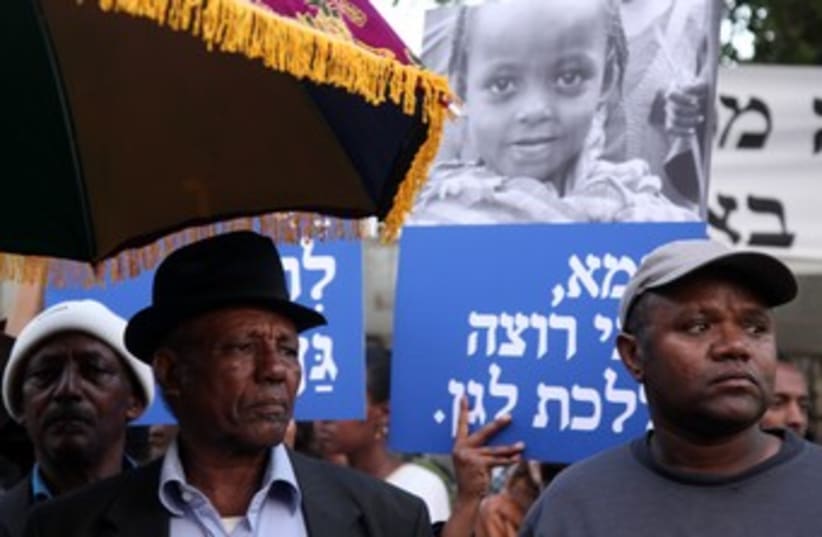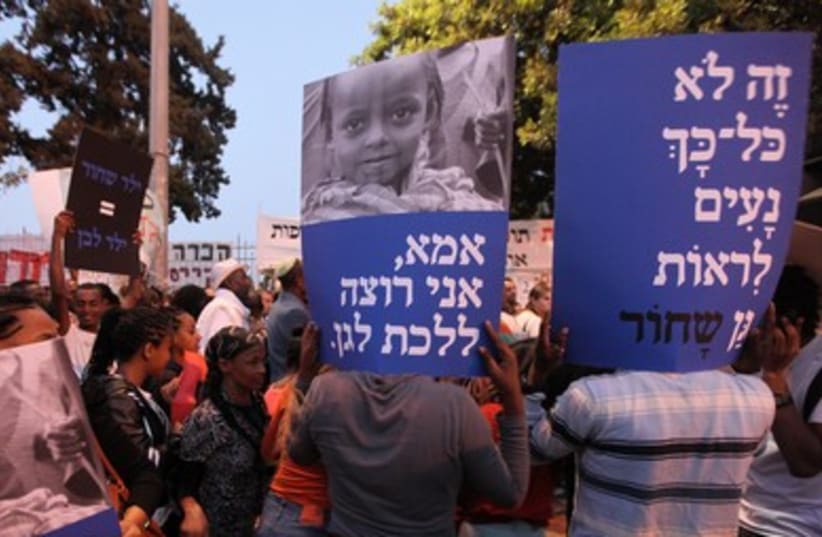
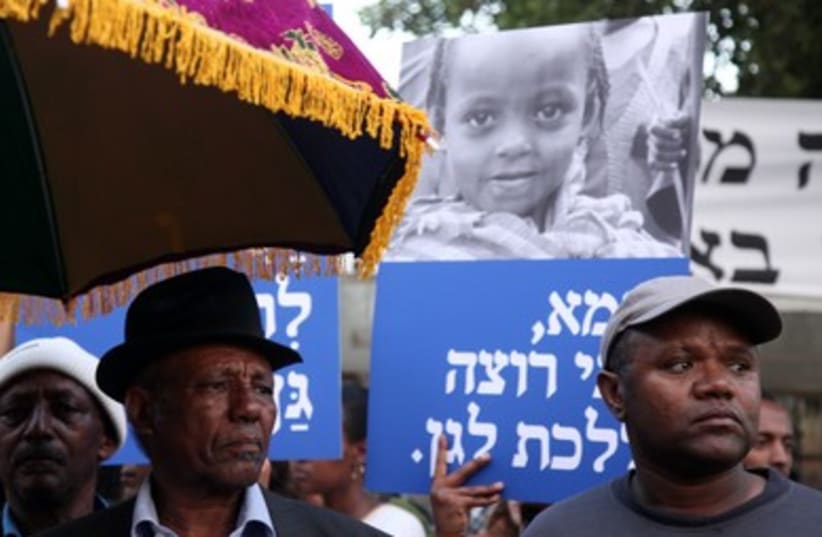
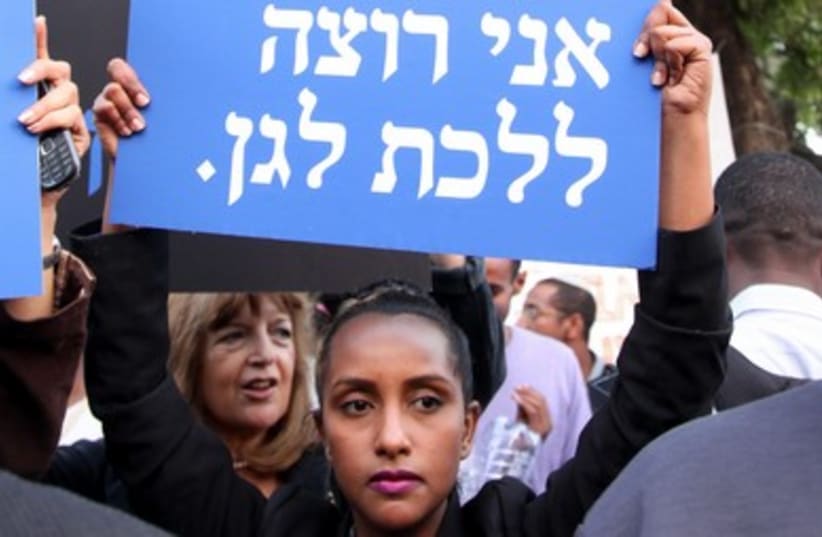
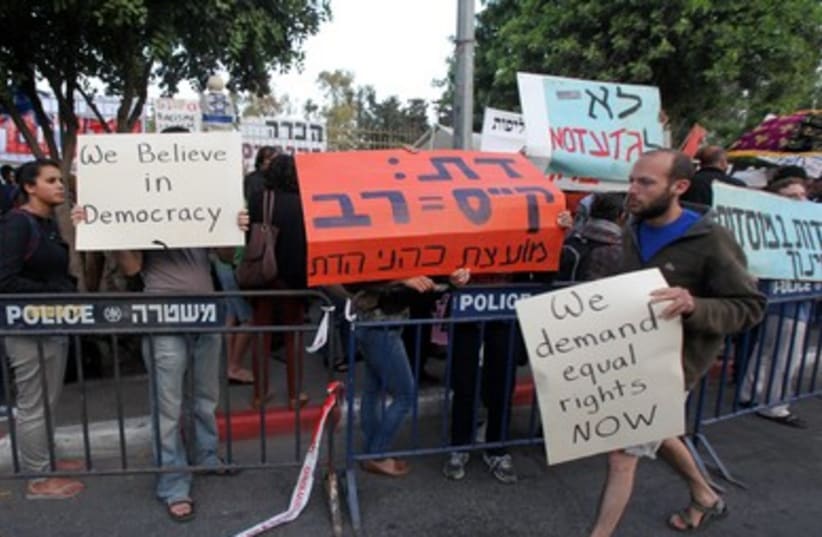
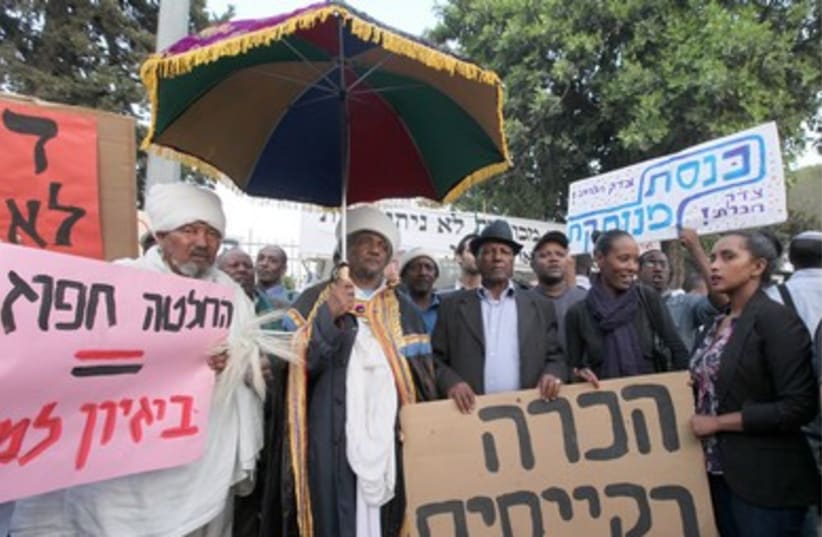

“Over the years, Ethiopians have not been involved at all in creating government programs for the community,” said the Knesset’s only Ethiopian-born MK Shlomo Molla (Kadima), who called an emergency conference to discuss the plan that Prime Minister’s Office director-general Harel Locker drafted and the cabinet approved last week.“Myself and most of the Knesset members interested in this issue will continue to insist that the Ethiopian community be involved in any final decisions and not just become an afterthought to the matter,” added Molla, who was joined at the session by MKs Miri Regev (Likud), Ilan Gilon (Meretz) and Shakib Shanan (Independence).Speaking at the conference, Molla highlighted that the social and economic gap between Ethiopian Israelis and the rest of society was only growing and that the community as a whole was lagging far behind even the poorest sectors.He also pointed out that a large number of Ethiopian Israelis drafted into the army ended up in jail because of social and cultural problems, and that overall the community has poor educational achievements.In addition, Molla said that a high number of Ethiopian Israelis end up having their civil rights abused in the workplace, since they are often employed as contractual workers without the full range of benefits afforded to full-time, permanent employees.Molla is only one of many community members who feel the government plan is just a continuation of paternalistic policies toward the Ethiopian population.His protests were echoed later on Wednesday by a few hundred members of the community who demonstrated outside the Prime Minister’s Residence in Jerusalem, where people have been maintaining a protest tent for more than two months to urge the government to address the problems.“The decision made by the government last week has nothing to do with us and does not benefit us at all,” commented Tariko Arash, who helped organize the Wednesday demonstration and has created a Facebook group to enable the community to air their grievances toward government policies.“The plan will not change anything,” he said, adding that issues requiring government attention included social and educational discrimination and segregation, equal opportunity in the workplace, more recognition of the importance of kessim (Ethiopian spiritual leaders) and an end to harassment of young Ethiopians by the Israeli police.Arash claimed that discriminatory actions by authorities, including the police, only serve to deepen the social gaps between Ethiopian Israelis and the rest of society.Information released last week by the Prime Minister’s Office indicated that the new plan will address some of these issues, including providing immigrants with an increase in their housing grants and the creation of a new employment service to help place Ethiopian immigrants in jobs that suit their skill and educational level.Moreover, the plan will see some 30 positions created in the civil service to increase the presence of Ethiopians in that sphere, and two new kessim appointed to work with the community.Also included in the plan is a comprehensive outreach program to tackle racism against the Ethiopian community, which media reports indicate is growing rapidly in Israeli society in general.Information provided by the Prime Minister’s Office said that the new plan will be incorporated into a five-year plan established in 2008 that was also aimed at improving the absorption of the Ethiopian community.Despite this, leaders of nonprofit organizations working within the community have called the plan paternalistic and have petitioned Prime Minister Binyamin Netanyahu to make revisions.The Prime Minister’s Office responded on Wednesday that the reaction of the community was highly surprising considering that Netanyahu, members of his office and other ministers had held lengthy meetings with representatives of the community during the formulation of the plan.The Prime Minister’s Office also said that Netanyahu has demonstrated his commitment to including the voice of the community in decision-making by appointing Aleli Admasu as a special adviser on Ethiopian issues. The plan approved by the government last week touches on many areas of struggle for the immigrant community, such as education, employment and housing, as well as discrimination issues, the office said.
